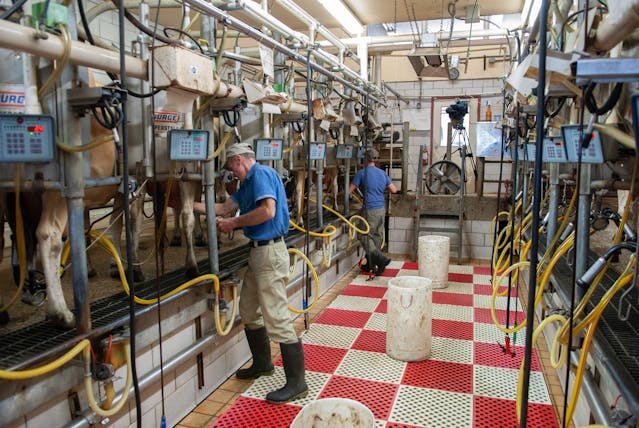Home » News » 2024 » December
News Brief
Dec. 4, 2024 |
By: By Mike Moen - Public News Service
As candidates are sworn in, some will be reminded of factory farm health impacts

By Mike Moen - Public News Service
When newly elected candidates take office next month, they will hear from a range of constituents and special interest groups about a wide range of issues.
In states such as Nebraska, the health effects from factory farms could be among them. Nebraska is among the states with the most concentrated animal feeding operations.
Jonathan Leo, an environmental and land use attorney, worries the election results will not do anything to shake up the status quo in regulating such sites. Even with growing research about harmful nitrates from animal waste polluting drinking water, Leo said there is too much of a "baked-in" resistance at the local, state and federal level to push for meaningful change.
"There is a long-standing political culture that is antiregulatory," Leo pointed out.
Under the Biden administration, the U.S. Department of Agriculture has made moves aimed at helping smaller, less-polluting farms thrive. But Leo pointed out it also pushed for carbon-sequestration projects, which benefit factory farms. He also wonders what might happen under President-elect Donald Trump's pick for agriculture secretary. Observers said she does not have much history related to ag policy but is backed by groups aligned with industrial farming.
Eleanor Rogan, professor and associate dean of the College of Public Health at the University of Nebraska, has helped lead research on health issues linked to agriculture runoff, including higher cancer rates among children. She said it is not just cases of extreme drinking water pollution to worry about.
"Chronic illnesses are beginning to be associated with lower levels of nitrates," Rogan emphasized.
Rogan argued protecting public health is vital but acknowledged unintended consequences, such as tighter regulations forcing smaller communities to spend money they might not have on water system improvements.
Leo acknowledged there are promising signs in conservative states such as Nebraska, where some GOP legislators have introduced bills to address the effects of pollution from concentrated animal feeding operations. But he stressed there needs to be more urgency and those concerned need to keep educating policymakers about what is at stake.
"To indicate that it's a genuine, nonpartisan concern that has solutions, if only people can embrace them," Leo added.
![]()






